
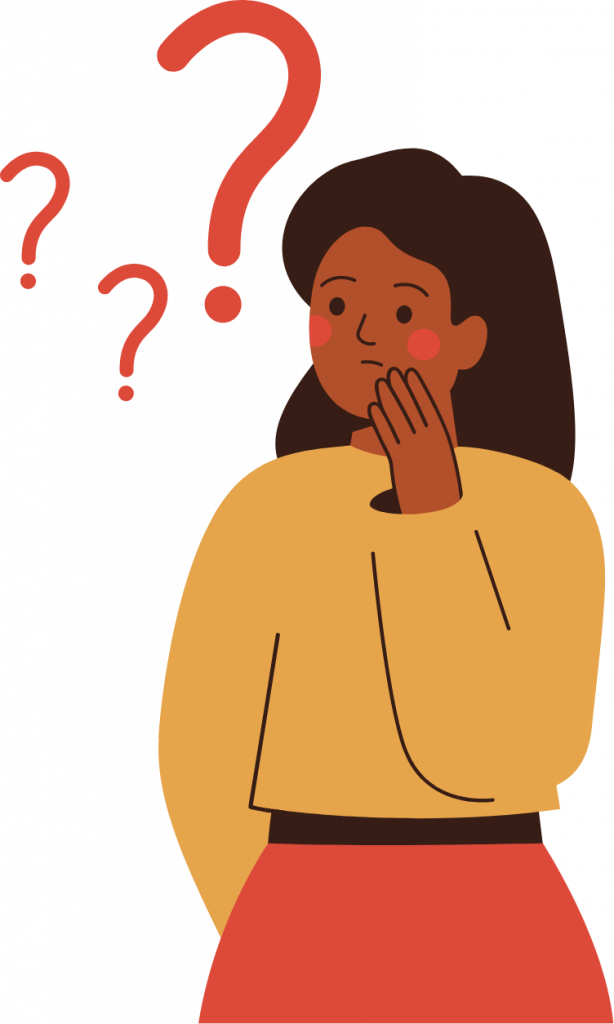
Emotions
Whether emotions are comfortable or uncomfortable, they are a part of life. No matter what emotion a person is feeling, their feelings are valid. It is about learning how to express them in healthy ways.
Talking About Emotions With Your Child/Youth
Having open conversations about emotions will let your child know that it is okay to have their feelings.
Comfortable Emotions are emotions like happiness, joy, and contentment. These are the emotions we want to spread to others. They feel really good.
Uncomfortable Emotions are emotions like sadness, anger, and grief. These emotions help us to appreciate the good times in our lives. These emotions can propel us to take action and make changes.
Whether emotions are comfortable or uncomfortable, it is important to learn how to accept them. You can help your child/youth accept their emotions by validating their emotions/experiences. For example, “Yeah, that would be frustrating. I would be frustrated if that happened to me, too.”
When you are talking about emotions with your child/youth, try practicing empathy versus sympathy. Check out this video by Brené Brown to learn the difference between the two.
Understanding Emotions
Expressing emotions is important. Allow for a safe place for your child/youth to express their emotions. Even if the problem or victory seems silly, it is a big deal to them. Therefore, it is valid. A person’s emotions might be different than what yours would be/are in the situation, and that is okay. Everyone handles things differently.
Emotions are not “bad.” There are some emotions that have a bad reputation and are thought of as bad, like anger. It is how someone expresses the emotion which can be a problem – not the emotion itself.
It is important to listen and not to fix the situation. You can ask if the person would like advice or help, but if they do not want it, the act of listening can be helpful in itself. Learning to deal with uncomfortable emotions as a child/youth can help a person later in life.
All emotions are natural and healthy to feel. If your child/youth (or you) feels like they cannot let go of an uncomfortable emotion or they feel like that all the time, it is important to talk to someone about it and use healthy coping skills.
Anger
What Is It?
Anger is a natural emotion that is commonly misunderstood. It is sometimes thought of as a negative emotion. Anger, like any emotion, is valid and worth feeling. It can actually be beneficial at times. It can propel you to think of solutions to your problems or make changes.
Anger is problematic when someone feels angry all the time or expresses their anger in a hurtful/unhealthy way. It is okay to be angry, but it is not okay to take it out on someone/something else. Like any emotion, it is important to feel anger and express it in a healthy way.
The funny thing about anger is that it is often the surface emotion of what it truly going on. Check out this image from Therapist Aid. The Anger Iceberg illustrates how anger is often what we see, but it is rooted in something else. This is why it is important to talk to your child/youth or connect them with someone to talk to if they are struggling with anger.
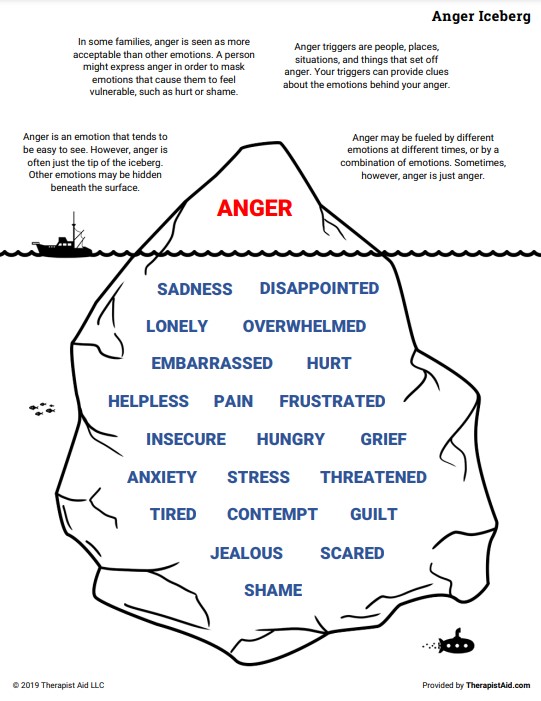
What Does It Feel Like?
Anger can feel different for everyone. Knowing what it feels like can assist you in helping your child/youth identify how they are feeling.
Anger can feel like:
- Faster breathing
- You can feel flushed, hot, or sweaty
- It can make you feel like yelling or screaming
- It can feel like your stomach is turning and whirling
- It can make your muscles feel ready to run
- Your heart might start pounding and beating quickly
- You might tense your muscles
- It could feel like your body is prickly
- And more
What Can You Do to Calm Down?
It is okay to feel angry and upset. It is about learning how to express it in a healthy way. Anger will not go away if ignored. Ignoring it can make it worse.
Being angry does not mean someone has the right to hurt others, self, living things, or property. Take a moment before you act/speak.
The following are healthy coping skills to help your child/youth (and you!) whenever they are angry. It is important to remember that not every skill is going to work for every person; it is about finding what works for them (and you).
Things to calm down:
- Take slow, deep breaths
- Scribble on a piece of paper
- Yell into a pillow
- Play a game
- Go outside
- Get active
- Listen to music
- Dance
- Play an instrument
- Write it out
- Take a break
- Watch a funny movie
- Have a bath or shower
- Think of what is bothering you and think of solutions to deal with it
- Talk with a loved one
Grief
What Is It?
Grief is a strong emotion that is a natural reaction to loss (Mayo Clinic, 2016). Loss is not just from someone passing away. There are many different types of losses a person will cope with within their life, such as loss of relationship (breakup from an intimate partner or friend or family), loss of safety, loss of job, and more. Everyone experiences grief differently, and different situations bring different feelings of grief and loss. It was once thought that there were stages of grief, but the lines of grief are blurred. It does not just operate stepwise. Helping a child with grief can be challenging as everyone has different mourning periods.
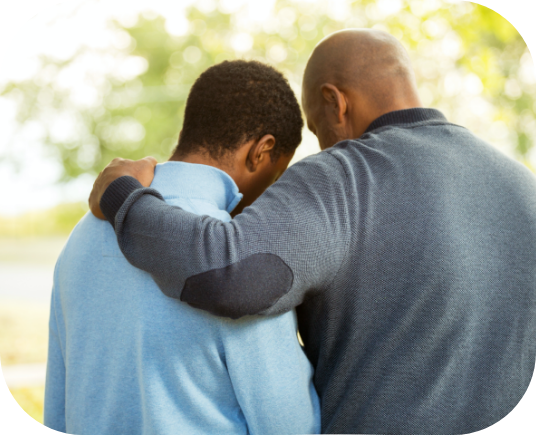
What Does It Feel Like?
Grief has many different parts, and everyone experiences it differently. There is no set way to experience grief.
Grief can feel like:
- Sadness
- Disbelief, shock, or denial
- Nothingness/numb or disconnection
- Confusion
- Panic or fear
- Rage or anger
- Overwhelming
- Relief
- Guilt
- Mixed emotions
- Tiredness
- Hard time sleeping
- Change in weight/appetite
- Feeling physically unwell (upset stomach, rundown, aches, etc.)
- It can influence one’s mental health (substance use, depression, anxiety)
Grief typically does not happen stepwise. We can experience many emotions or feelings that can shift throughout the day, week, and months.
How Can We Cope With Loss?
Like anything, grief does not go away if we ignore it. It will turn up in other ways in our lives.
Some tips for coping with grief for your child/youth and you:
- Do not ignore it
- Acknowledge the pain
- Feel your feels
- Express yourself (art, journaling, music, dancing, scrapbooking, etc.)
- Connect with others
- Keep doing your “things” – continue with your routine and hobbies
- Take care of yourself (eat well, get enough sleep, exercise)
- Avoid alcohol or drugs (while it might momentarily make you feel better, it can make it worse)
- Allow yourself space to feel your emotions
- Do not “should” yourself – For example, “I shouldn’t feel this way,” “I should be doing this.”
- Do not allow others to tell you how to feel/tell others how they should feel- it is an individual journey
- Talk to someone about it – a loved one, mental health professional, elder, spiritual leader, etc.
- Practice self-compassion – be kind to yourself
Disappointment
What Is It?
Disappointment is an emotion that can happen when something does not turn out how expected or when expectations are not met. Feeling disappointed is a part of coping with the challenges of life. We cannot always be first, win, or get what we want, and children/youth need to build skills to deal with disappointment.
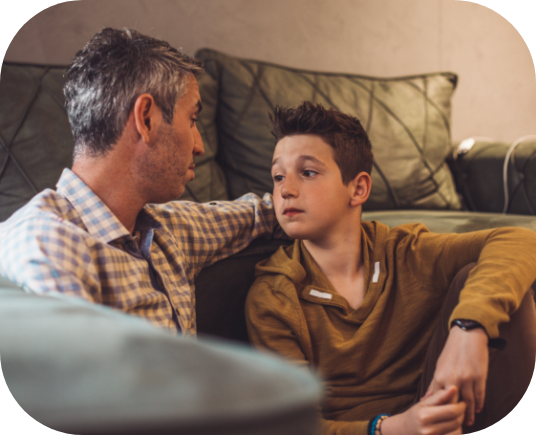
What Does It Feel Like?
Disappointment can show up in many ways.
It can feel like:
- Sadness
- Hurt feelings
- Anger or irritation
- Embarrassment or shame
- Blaming self or others
- Bitterness or spite
- Betrayal
- Feeling let down
- Lump in your throat
- Feeling like crying
- Feeling not good enough/worthy
How to Cope With It?
Disappointment is a part of life. Things do not always turn out the way we expect or would like. Feeling disappointed can be a learning opportunity. Learning skills to deal with disappointment is an important part of life.
Building the skills of resiliency can help deal with the trials of life and disappointment.
Other ways to deal with disappointment:
- Understanding the feeling and recognizing that it is valid
- Looking at the situation and understanding what is in your control
- Looking at our expectations and checking that they are reasonable
- Feeling your feelings
- Reassessing goals and needs
- Looking at the big picture
- Talking to a loved one
- Expressing the feelings (art, movement, journaling, music, talking, etc.)
- The disappointment is not you
Feelings of Inadequacy
What Is It?
Feelings of inadequacy (feeling not good enough) are emotions that can show up as your child not feeling good enough, not believing in themself, or not having confidence. It can feel like being unworthy. Feeling not good enough can happen to any of us. Like any emotion, feelings of inadequacy can result from many things.
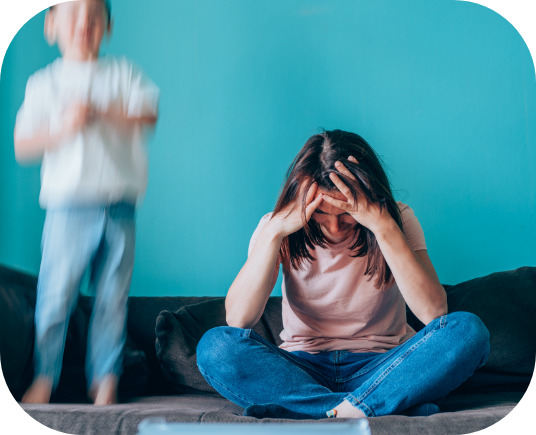
What Does It Feel Like?
It can feel like:
- Not confident
- Unworthy
- Not believing in oneself
- Sadness
- Upset
- Frustrated/mad
- Like everything is awful
- Not loved
- Lonely
You might also notice your child/youth acting out or avoiding others. They might also not want to try new things because they feel they are not good enough to try. It can show up in many ways.
How to Cope With it?
Feeling not good enough can feel really uncomfortable. You can help your child/youth by supporting them. You can support them by encouraging, loving, and accepting them.
Ways you can help your child/youth deal with feeling not good enough:
- Get your child/youth to write down 10 things they love about themself or that they are good at
- Help them challenge their beliefs
- For example, if they say, “I can’t do this. It’s too hard,” you could ask them about something they are good at and if they were always good at it. You could remind them they became good with practice.
- Encourage activities which help them feel good and connect with others
- Ask them to teach you something they are good at
- Do something they enjoy
- Look up relaxation techniques or meditations on YouTube
Sadness
What Is It?
Sadness is a normal feeling we all have. It is emotional pain. It is a natural reaction to difficult situations.
Sadness can be from many things. It could be from losing something/someone, hurt feelings, or being left out. Sadness can also be from something going wrong. It could also be when something gets ruined or broken.
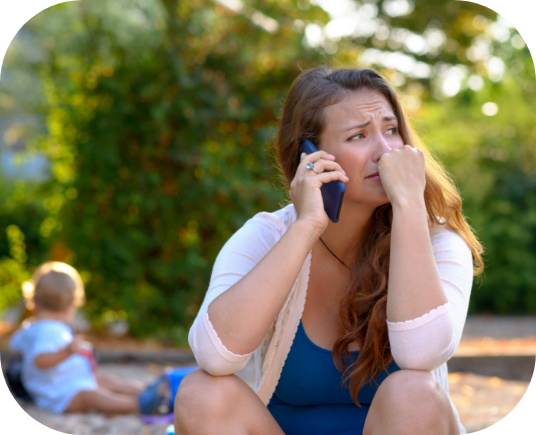
What Does It Feel Like?
Sadness can feel like:
- Crying
- Hurt feelings
- Your body is heavy
- There is a lump in your throat
- You are tired
- You are upset
- Unhappiness
- Low mood
- Disappointment
What Can You Do to Feel Better?
It is important to remind your child/youth (and yourself) that it is okay to be sad; it is about learning to feel and express the emotion in a healthy way. In addition to comforting your child, there are some things you can help your child/youth.
Things you can do:
- Take some slow deep breaths
- Read a book
- Watch a funny video
- Cry
- Draw/write it out
- Get active
- Name your feeling and talk to someone about it
- Think of things which make you happy
- Take a break from technology
- Be nice to oneself and others
- Talk to someone
- Cuddle a pet
- Go for a walk
- Listen to music
- Do something kind for someone else
Fear
What Is It?
Feeling scared is a natural reaction to something that seems dangerous or unsafe. We are typically scared of things that make us feel unsafe or unsure. Fear can be a good thing. It can operate as a warning sign to help us avoid danger.
Fear, like any emotion, can be intense or mild. It can last for different amounts of time. There are times when our reaction does not match the level of threat. Our reaction might be unnecessarily intense for the situation.
Phobias are intense fear of a specific thing, like public speaking or spiders. Phobias cause an intense/extreme reaction compared to the level of threat. Many people have phobias.
It is possible to overcome phobias and fears.

What Does It Feel Like?
Fear triggers the fight or flight response. This response is triggered when the brain views something as a threat. It causes a physical reaction and prepares the body to either fight, flight (run away), or freeze to cope with the threat. This response can be triggered even when something is not life-threatening. A person’s response can vary from mild to intense.
Fear can feel like:
- Your heart beating faster
- Sweaty
- You are ready to spring into action
- Breathing more rapidly
- You can’t move or you are frozen in place
- Crying
- Butterflies in your stomach
- Upset stomach
- Body tingles
- Flushed or warm
- Shaking
- You can’t think clearly
- Anger or sadness
- Irritable
What Can You Do to Calm Down?
It is important to remind your child/youth it is okay to be scared, but it is not okay to be hurtful to others because of fear. Like any emotion, fear is a natural reaction. Along with comforting your child/youth, there are things you can help them do to calm down and feel better.
Things you can do:
- Take slow, deep breaths or try relaxation techniques
- Scribble on a piece of paper
- Yell into a pillow
- Go outside
- Get active
- Listen to music
- Dance
- Play an instrument
- Write it out
- Take a break
- Watch a funny movie
- Help your child think of what is bothering them and healthy solutions to deal with it
- Talk with a loved one
- Play with a pet
- Ask for help
- Read a book
- Go for a walk
- Think of things that make you happy
- Help your child/youth safely face their fears
Loneliness
What Is It?
Loneliness or feeling left out is being alone when we do not want to be alone. This can happen even in a group of people. Loneliness can feel like we are alone and have no one to talk to or hang out with.
Sometimes, we want to be alone. Loneliness is when we want to connect with others, and it feels like there is no one to connect with us.
Loneliness can be from many different things.
It can be from:
- Moving
- Switching to a new school. That can be scary! It can be hard to feel connected when switching schools.
- Social media. Sometimes, we go on and see people hanging out or doing fun things, and we can get FOMO (fear of missing out). Remember, socials are only a snapshot of reality.
- Not being included. This could be to hang out or in a conversation.
- Not fitting in. When you have not found “your people” yet, it can be hard! There are people out there for you. It might just take some time to find them!
- Bullying
- Poor relationships/friendships
- And more
Research has shown there are certain people who are at higher risk for loneliness. This includes people who are immigrants or identify as 2SLGBTQIA+. This is because of many things such as language barriers, discrimination, and stigma.
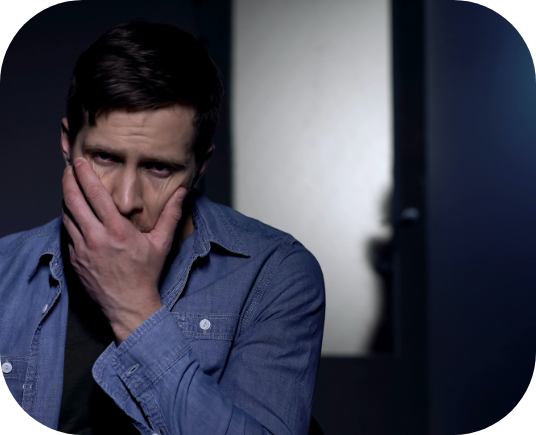
What Does It Feel Like?
Loneliness or feeling left out can feel different for everyone.
Loneliness can feel like:
- Sad, mad, or unhappy
- Upset
- Alone
- Your child/youth has no one to talk to or hang out with
- Your child/youth wants to hide
- Your child/youth wants to be around other people
- They do not fit in
- Hurt feelings
- Anxious
What Can You Do to Feel Better?
Everyone feels lonely or left out from time to time. It is important to remind your child/youth that it is okay to feel lonely, but it is not okay to hurt themself or others because of the loneliness. It is about finding ways to feel better and connect with others.
Help your child/youth to figure out what works to help them feel better.
Things you can do to feel better:
- Play a game
- Call/text/DM/Snap a loved one (friend or family member)
- Join a group or club
- Do kind things for others
- Play with a pet
- Hobbies
- Talk to someone you trust about how you are feeling
- Draw
- Watch a funny movie or video
- Get active
- Go outside
- Cry
- Yell into a pillow
- Journal
- Think of ways to connect with others
- Take a break from socials
- Ask for help
Model Healthy Coping Skills
Children and youth learn by seeing and modeling. If you use healthy coping skills, it will help them to adopt healthy coping skills. What are some healthy coping skills?
Healthy coping skills are things you do that bring positive results, like feeling better without hurting oneself or others. These positive coping skills can look different for everyone. For example, do you, or someone you know, like listening to sad songs when sad? This could be a healthy coping skill as it offers a release.

Healthy coping skills include:
- Reading
- Writing
- Journaling
- Drawing
- Getting fresh air
- Talking to a loved one, mental health professional, or helpline
- Playing with a pet
- Watching a movie
- Playing a game
- Playing sports or being active
- Hobbies
- Crafting or building
- Listening to music
- Playing an instrument
- Learning something new
- Hanging out with positive influences
- Makeup or fashion
- Art
- Relaxation techniques, yoga, or meditation
- And more
There are countless healthy coping skills. What works for one person may not work for the next. It is about finding what works for you and helping your child find what works for them.
Further Resources
All articles referenced above are collated here for your convenience and further reading:
Coping with Grief and Loss – HelpGuide.org
What does grief feel like? | Mind, the mental health charity – help for mental health problems
Dealing with Disappointment (hbr.org)
A Psychologist’s Advice on How to Deal with Disappointment (manhattancbt.com)
Goals of misbehavior – Part 4: Inadequacy – Early Childhood Development (msu.edu)
If you would like to speak to someone about mental health issues, the Alberta Health Services Mental Health Help Line is available 24/7, offering information and referrals on any aspect of mental health.
Call toll-free: 1-877-303-2642
Trending Topics
Depression
Depression What Is It? Depression is a mood disorder which means it impacts how a person is feeling. It can cause a person to feel
Accidental Overdose
Accidental Overdose What Is it? An overdose is what happens to someone’s body when they take too much of a substance or too many substances.
Online Relationships
Online Relationships Online can be fun! There are games, music, and videos. We can talk to friends and family online. Tips for Being Safe Online:
Online Relationships
Online Relationships Online can be fun! There are games, music, and videos. We can talk to friends and family online. Tips for Being Safe Online:

